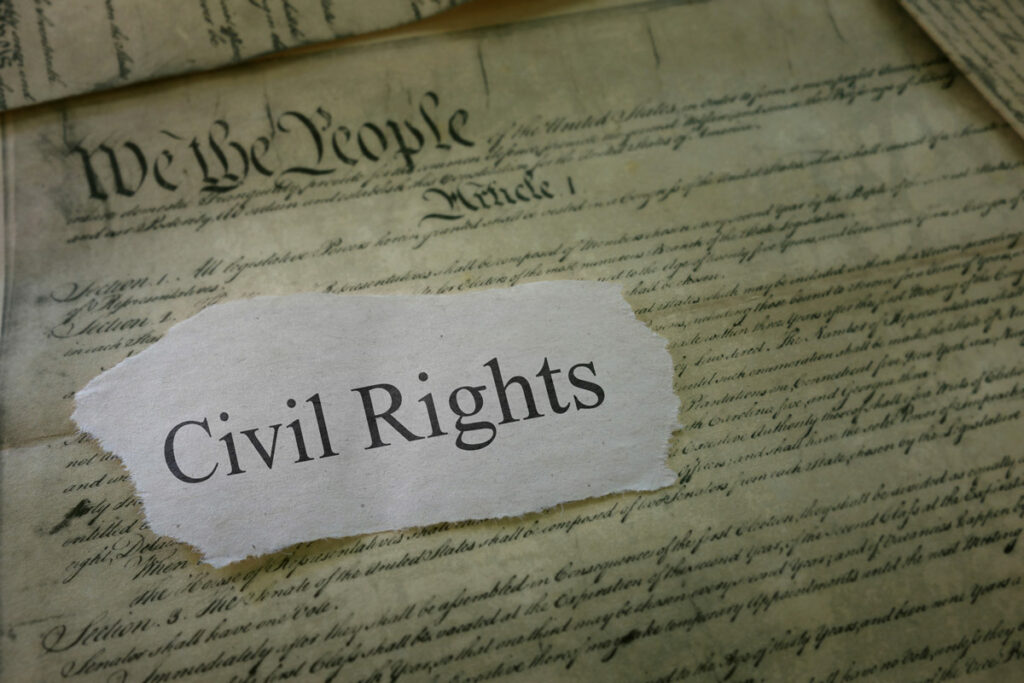Civil Rights Litigation: Why It Matters

Civil rights litigation plays three indispensable roles in the ongoing pursuit of a better, more just and equal society: first, it presents a way to overcome injustice where legislation lags; second, it informs the process of passing meaningful legislation to reform the policies and social norms that deprive Americans of their civil rights; and third, it provides a civil means of ensuring that powerful organizations follow the laws once they are on the books.
In 1976, Abram Chayes introduced a radical new concept in civil law—the idea that the victims of systemic injustice could create change through “public law litigation.” Before that, civil law was largely limited to moderating conflicts between two parties, but Chayes argued that those whose civil rights had been violated through social or institutional injustice could sue for systemic change. Since then, civil rights litigation has been able to succeed even where the law is vague, driving significant reform ranging from the end of orchestrated school prayer to the dismantling of legal apartheid.
Beyond winning victories in court, civil rights litigation also clarifies the nature of injustice, raises awareness among politicians and the public, and helps to inform the legislative process. This is an essential part of the American system: the United States Constitution gives the judicial broad power to “check and balance” the legislative and executive branches. And in dozens of landmark cases, such as Brown v. Board of Education and Miranda v. Arizona, civil litigation has led to better laws and a fairer system.
Finally, most civil rights laws are civil in nature. Anti-discrimination laws, for example, create a standard by which a plaintiff can sue for damages, but they do not impose criminal penalties for those who violate them. (That is, an employee who loses out on a promotion because of her race can sue for the wages she lost through discrimination, but her manager won’t face criminal charges.) That leaves civil rights litigation as the primary means for enforcing those laws. From the swath of lawsuits challenging police departments’ use-of-force guidelines to litigation protecting women of color from potentially cancerous talcum powder, civil rights litigators ensure that those who violate civil rights laws pay a price.
However, systemic violations of civil rights are often nuanced, making civil rights cases challenging. If your civil rights have been violated, working with a qualified lawyer to assess your potential suit and the damages you may be able to recover is an essential first step.
